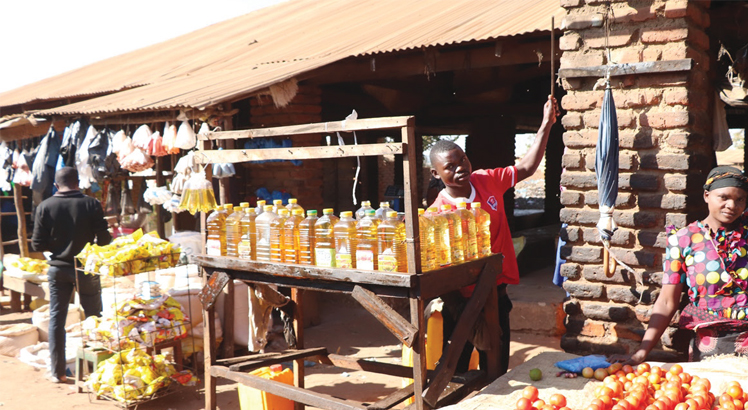World Bank suggests kwacha re-alignment
The World Bank says further re-alignment of the kwacha could help government deal with the country’s current economic woes.
In an interview on Wednesday this week, the bank’s acting manager in the country Efrem Chilima, said Malawi may need to consider further re-alignment of the kwacha to regain economic stamina.
He said: “The government can restore short-term macro stability through a package of reforms such as adopting a more flexible exchange rate management system, fiscal consolidation and ensuring debt sustainability. Together, these will provide confidence to the market and can unlock a more positive private sector response.”
Flexible exchange rate management system is the same as a floating system, which is a monetary system that allows the exchange rate to be determined by supply and demand.
Chilima said another way could be that government should cushion the vulnerable with social protection programmes as it is clear that the rising prices are hurting the poor most.

In this regard, Chilima said the Board of the World Bank approved $188 million scale up of government’s social cash transfer programme and enhanced climate smart public works, which include shock-responsive financing in the event of food insecurity.
He further emphasised that these are among the best options for Malawi, saying: “It isn’t an issue of deciding but looking at reality; does this exchange rate reflect reality? So, what happened was to reflect reality where the exchange rate was reallocated to where it is today.”
Chilima also said that government needs to enhance competition so that the country can have a base where enterprises can actually create foreign exchange.
Without being explicit, Chilima said there is need to rethink the Agriculture Inputs Programme (AIP) where the number of beneficiaries, for instance, needs to be questioned.
According to him, the best way is to see what AIP is achieving, saying: “People have agreed that it is very helpful, but what has happened is that the resources allocated to AIP are quite huge and the government has lost out in using the same funds in other areas. Then we need to question whether the numbers being supported are right.”
Through its 15th Edition of the Malawi Economic Monitor (MEM), the World Bank has indicated that even after the recent devaluation, the inflation rate is rising, the fiscal balance is worsening, debt is growing and the gap between the official exchange rate and the exchange rate on the informal market is widening, a situation which calls for further action by government if things are to change.
In an interview yesterday Reserve Bank of Malawi’s manager responsible for public relations Dave Ndege said that recently the bank already realigned the exchange rate to its market rate as a way of ensuring that the exchange rate is market-determined.”
Ndege also said the bank already started the process of gradually reducing its direct support of importation of strategic imports and will allow the market to take care of the demand.
Commenting on the matter, economist Milward Tobias said addressing the country’s economic challenges requires a 360 degrees thought process.
According to him, further devaluation of the kwacha cannot improve anything, rather it will just aggravate the country’s problems.
Said Tobias: “The best way to address the challenge is to improve supply of foreign currency on the formal market.”
According to Tobias, another way of improving the foreign currency availability is to reduce demand by not authorising purchase of foreign currency for the importation of items that can easily be found locally.
Another economist, Betchani Tchereni said that the World Bank is actually referring to the practicality of things on the ground which, as things are at the moment, the kwacha is already floating as reflected on the black market.
Tchereni was, however, quick to say that it would not be wise to quickly adopt a flexible currency management system as that would put an ordinary Malawian at a disadvantage.
He said: “This can be okay from the World Bank colleagues since they earn in foreign currency but, trust me, it won’t be alright with the rest of us on the ground. It is not simple. A slight depreciation translates into inflation.”
According to him the solution does not lie in meddling with the foreign currency exchange rate but rather in Malawi being self-reliant.





